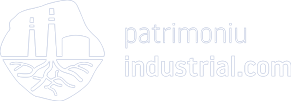How was the project born?
Credits
| How was the project born? | The first element to feed our imagination were the steam locomotives that early cinema brought to us, demonstrating the powerful connection between images and industry. After a number of years and several film shoots in a variety of industrial regions across Europe, an intuition that we had always harboured was confirmed: of the peculiarity of the Asturian industrial heritage, and the need to construct our own account of it. Without dwelling in nostalgia, we focused on a legacy which, following two centuries of industrial transformation of the territory and its people, tells us about the present and allows us to question the future. |
| How to make it happen? | The best way we know: using a distinctive artistic approach, in order to penetrate and understand each of the heritage sites, appropriating them through a deliberate audiovisual perspective in addition to the conventional historical approach. Bringing together more than twenty professionals from films, television, historical research, photography, sound, design and technology. |
| How was it financed? | Finding proper resources and funds is never easy, but we enjoy challenges. To make it even more difficult we tried to include all those related to the field as part of the project. Having the support of the Ministry of Culture and the Government of Asturias, we continued raising funds through a crowdfunding campaign, in addition to canvassing local authorities. If heritage belongs to us all, it’s everyones’s task to contribute to its preservation. |
| Will there be updates? | It has taken us two years to create patrimoniuindustrial.com, and we now look forward to continuing the project and witnessing it becoming self-sustaining. The scale and variety of the Asturian industrial heritage will allow us to post regular videos on industrial landmarks, historians’ research essays, testimonies by workers and other new sections. |
| Who are Freews? | Freews is an independent film production company based in Gijón and founded in 2014 by Marta F. Crestelo and Marcos M. Merino with the aim of producing non-fiction films. Since then, Freews has produced three feature films, four short films, two non-fiction TV series and this ambitious online story of the Asturian industrial heritage. |
| Artistic Director | Marcos M. Merino |
| Production Director | Marta F. Crestelo |
| Design/Usability | Pedro Balmaseda |
| Programmer/Layouts | Juanma Rodríguez |
| Historians’ Coordinators | Faustino Suárez Natalia Tielve |
| Oral Memory Editor | Marta F. Crestelo |
| Historical Research and Texts | Natalia Tielve Faustino Suárez Guillermo Bas Mónica G. Cuetos Rubén Domínguez Manuel Antonio Huerta Eduardo Núñez |
| Director of Photography | Marcos M. Merino |
| Editors | Marta F. Crestelo Marcos M. Merino Pablo Casanueva |
| Sound Design | Oscar de Ávila |
| Camera Operators and Photos | Ignacio González Ignacio Martínez Juan González Marcos M. Merino |
| English Translator | Aitrad Luis A. Mayo Estudio Lambda |
| Asturian Translator | Araz Net |
| "Discover the history" and Landmarks" | María Zapico López Javier Gancedo Carolina Castañeda José M. Rodríguez-Vigil Javier Fernández López Gemma Suárez Menéndez Rubén Vega Miguel Areces |
| Assistant Editor | Celia Cuervo Francisco Laborda |
| Marketing Online | David Boto |
| Music | NiFe Flores Chaviano Manuel de Paz – Orquesta Sinfónica de Siero |
| Drone | Jorge Chachero Documentazul |
| Support | José Manuel Pérez Díaz (Pericles) |
| Special Thanks | Alfonso Manuel Calvo, Ana Carpintero, Ángeles Merino, Florín Fernández, Gumersindo Fernández, Inacio Iglesias, Isaac Rafael Álvarez, Javier Bauluz, José Ángel Canal, José García, José Luis Soto, José Vega, Juan Carlos Lora, Juan José Gutiérrez, Luis Adaro, Luis Cotarelo, María Díaz, Mari Paz Merino, Marta Pérez, Rolando Díez, Pablo Domenech, Paulino Fernández, Rubén Domínguez, Rubén Vega, Tito Aramendi, Toño Huerta, Vanessa García and many other who gave us their support anonimously. |

